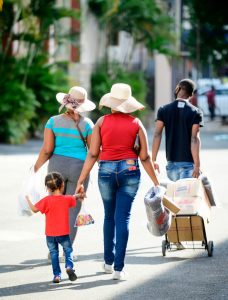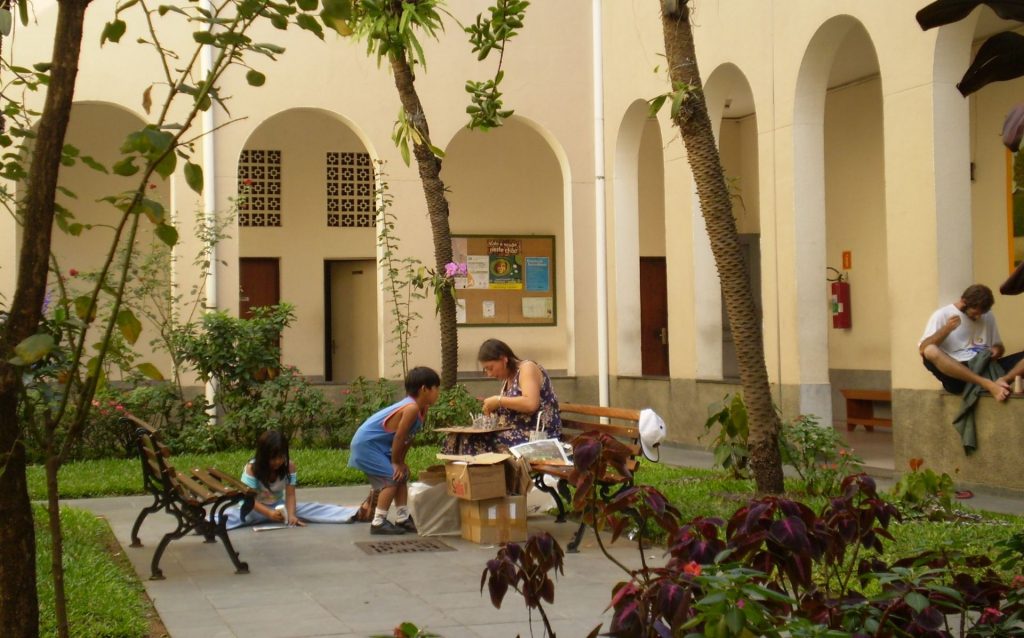Missão Paz (Peace Mission) has supported and welcomed migrants and refugees arriving in São Paulo, Brazil, since 1940. The institution belongs to the Missionaries of São Carlos (Scalabrinians) and is a member of the Scalabrinian International Migration Network (SIMN). Since 2021 members of the MMB Latin America group and Missão Paz have collaborated to share their knowledge and expertise on migration and mobility related issues.

The main objective of Missão Paz is to welcome migrants by understanding their stories, respecting their identities and promoting their integration into and active role in their new social environment. The institution fights for the respect of the human rights of individuals and groups in vulnerable situations (associated with their mobility processes) regardless of gender, faith, class, ethnicity and national origin.
You can read a post on the MMB Latin America blog that introduces the history and work of Missão Paz here.
Missão Paz is composed of:
- Casa do Migrante (Migrant House)
- Centro Pastoral e de Mediação dos Migrantes (Pastoral and Mediation Centre for Migrants)
- Advocacy, Communication, Memory and Documentation Centre
- WebRadio Migrantes
- Project Management
- The Centre for Migration Studies (CEM)

The Migrant House is the shelter of Missão Paz and has the capacity to accommodate 110 migrants who find themselves homeless. It offers food, clothes, personal hygiene products and Portuguese language classes, as well as social and psychological support from social workers and psychologists. The House has a TV room, library, playroom and laundry for collective use by the residents.
The Pastoral and Mediation Centre for Migrants is the axis of assistance and services and is structured through the following themes: documentation and legal support; work, training and citizenship; health; social services; family and community.
The Centre for Migration Studies (CEM) has a library specialising in migration and refuge. It also edits and publishes the journal Travessia: Revista do Migrante since 1988, offers online courses, organises seminars with national and international partner universities, runs the ‘CEM Dialogues’ with specialists, intellectuals and activists of migration, and supports the training of students and researchers interested in migration. In addition, the centre has a collection of documents regarding its own history, especially related to the 1970s and 1980s when Missão Paz worked closely with the armed struggle against the dictatorship in the fight for democratisation – one of the largest social mobilisations in Brazilian history.
Useful weblinks:
The CEM Dialogues can be watched live on the Missão Paz Facebook page (as well as on the WebRadio Migrantes page). They are usually held on the third Friday of the month.
‘To Be a Congolese Woman in Brazil’: this Missão Paz research project was carried out in collaboration with Angelo Martins Junior and Julia O’Connell Davidson of the University of Bristol. They recorded the stories of nine Congolese women for a ‘Beyond Trafficking and Slavery’ feature in openDemocracy. In these interviews the women lay bare why they went to Brazil and what they experienced once they got there.


